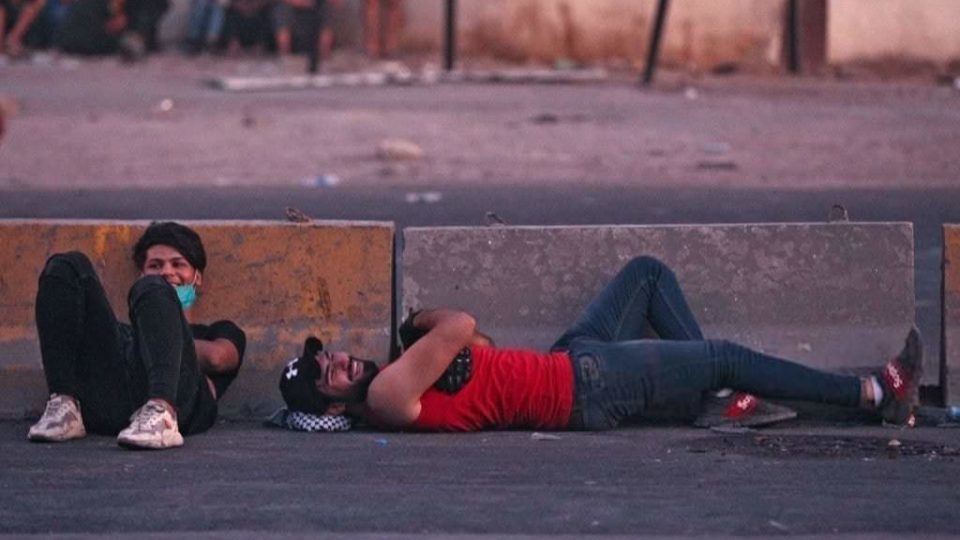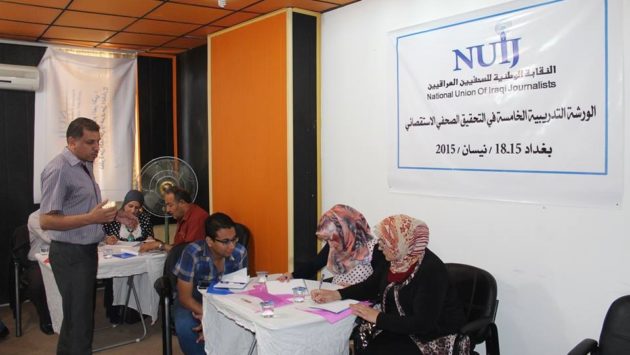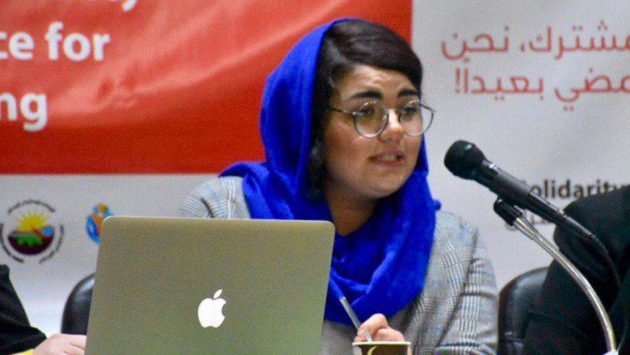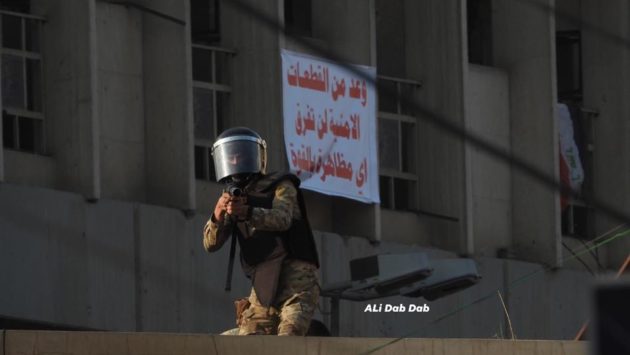Iraq: Authorities must immediately rein in security forces and protect freedoms of assembly and expression
The Iraqi government must immediately order security forces to stop using excessive, including lethal, force against protesters and ensure that the investigation announced into the reported killing of at least 18 protesters and one police officer begins immediately and is fully independent and impartial, Amnesty International said today. It also called on the authorities to end the unlawful blocking of access to the internet and social media, and to lift the arbitrary curfews imposed in several areas amid nationwide protests over unemployment, corruption and poor public services.
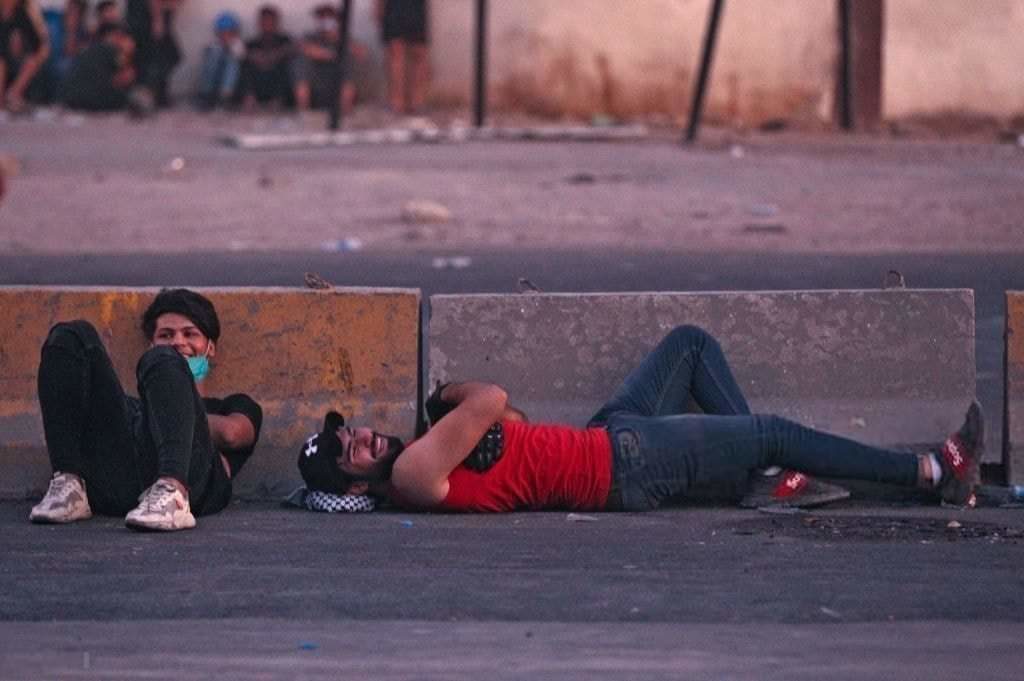
It is outrageous that Iraqi security forces time and again deal with protesters with such brutality using lethal and unnecessary force. It is crucial that the authorities ensure a fully independent and impartial investigation into the security forces’ use of needless or excessive force, which has led to the tragic deaths of protesters and scores of others being injured
Lynn Maalouf
Amnesty International has spoken to 11 civil society activists, medical volunteers and journalists from Baghdad, Basra, Najaf, Babylon and Diwaniya. The organization has also reviewed and verified audiovisual material of weaponry used by security forces including what appear to be stun grenades. All of the witnesses Amnesty spoke with described police using excessive force, including live ammunition, to disperse protesters.
“It is outrageous that Iraqi security forces time and again deal with protesters with such brutality using lethal and unnecessary force. It is crucial that the authorities ensure a fully independent and impartial investigation into the security forces’ use of needless or excessive force, which has led to the tragic deaths of protesters and scores of others being injured. The state must commit to holding those responsible to account. This must not be yet another case of the government announcing an investigation or committee of inquiry which never yields any results,” said Lynn Maalouf, Amnesty International’s Middle East Research Director.
The state must commit to holding those responsible to account. This must not be yet another case of the government announcing an investigation or committee of inquiry which never yields any results
Lynn Maalouf
Scores of people have been wounded as security forces escalated their crackdown on the demonstrations. A protester in Baghdad, one of many delivering first aid to injured protesters, told Amnesty International on 2 October that he had provided first aid to at least eight protesters. All of them had shrapnel in their body. “The skin on the stomach of one of the men was burnt,” he said.
An activist at the protests in Najaf city told Amnesty International on 2 October that he had witnessed security forces spraying hot water on the protesters and using tear gas excessively. “Eleven people were injured from the stampede and choking caused by the tear gas as people ran away… The forces started shooting in the air to disperse people, but they are still in the street.”
Protesters in Baghdad have described injuries consistent with those that can result from stun grenades if thrown directly or too close at protestors, or from explosive devices which should not be used at all in public order situations. Amnesty International has also verified video footage from protests in central Baghdad’s Tahrir Square depicting such injuries to a protester. According to international human rights law and policing standards, stun grenades should only ever be used by specially trained officers in very specific circumstances that do not include public order policing operations or managing assemblies. They should never be thrown at a person or in a manner which may result in detonating on or near a person.
The organization is further concerned about reports of arbitrary arrests of protesters and journalists in several Iraqi governorates. In Basra, Baghdad and Najaf, protesters told the organization that security forces are randomly arresting protesters.
Instead of meeting these protests with arbitrary and excessive force, authorities must address protesters’ grievances and the root causes of the unrest in a sustainable manner,
Lynn Maalouf
In Najaf, an activist described the tactics of the forces towards protesters: “They [security forces] followed them home and cornered them in side streets and alleyways where other protesters could not protect them. [In the police station] they searched through their phones, threatened them and interrogated them about the protests.”
Activists told Amnesty International that they were calling for a change of government because they no longer believe any promises made by the current government, which they accuse of ignoring years of protests.
Protesters also told the organization that they do not belong to one faction or political party but represent a broad spectrum of people who have had enough of corruption, bad public services and unemployment. One protester from Najaf said: “We’re not represented by a party or a group. If the authorities want to speak to us let them come to the street to meet us with words not bullets.”
“The yearly recurrence of these protests goes to show that the underlying drivers of these protests will remain as long as they are not meaningfully addressed. Instead of meeting these protests with arbitrary and excessive force, authorities must address protesters’ grievances and the root causes of the unrest in a sustainable manner,” said Lynn Maalouf.
Since last night, the authorities have also imposed a curfew across several governorates and cut off internet access throughout the country – excluding the Kurdistan Region of Iraq – and social media and messaging apps. Protesters in Bagdad on the night of 2 October told Amnesty International that they had not had access to the internet since 6pm: “We are cut off from the world. It’s just us and the forces here facing one another.”
Such draconian measures underscore the lengths to which the government is prepared to go to silence protests away from cameras and the world’s eyes.
Lynn Maalouf
Amnesty International calls on the Iraqi authorities to immediately reverse the unlawful decision to block internet and social media platforms and to lift arbitrary restrictions on freedom of movement.
“Such draconian measures underscore the lengths to which the government is prepared to go to silence protests away from cameras and the world’s eyes. By doing so, authorities blatantly violate domestic and international laws that they have committed to respecting, including the right to peaceful assembly and freedom of expression,” said Lynn Maalouf.
Background
Iraq: Authorities must immediately rein in security forces and protect freedoms of assembly and expressionDuring protests in southern Iraq and Baghdad in July and September 2018 to demand access to jobs, basic services and medical care the Iraqi security forces shot, beat and detained protesters. Iraqi authorities severely restricted access to the internet, including social media sites. Peaceful protesters who were fired on by security forces, believe the authorities deliberately disabled internet access as they were unable to share images and videos depicting the abuses.

